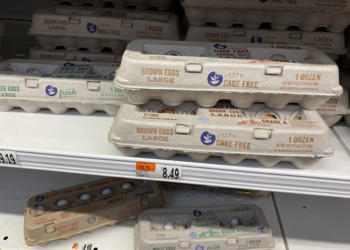Connecticut manufacturers collectively exhaled last week after the U.S. Senate voted to reauthorize the Export-Import Bank and raise its lending authority despite unexpectedly strong Tea Party opposition in both houses of Congress.
The Export-Import Bank, which guarantees commercial bank loans made to U.S. exporters, was at risk of losing its charter May 31 if debate over the reauthorization measure had stalled.
The bank completed $41.3 billion in total loan authorizations during its 2011 fiscal year, which supported $32.7 billion in exports and 288,000 American jobs, according to the bank”™s 2011 annual report.
Since 2007, the bank has backed more than $719 million in loans to Connecticut exporters, resulting in exports worth more than $1.36 billion.
“Exporting is a real key part of the Connecticut economy,” said Connecticut Business and Industry Association economist Peter Gioia. “Except for 2008 and 2009, we basically were setting export records every year since the early ”™90s.”
U.S. Rep. Jim Himes of Greenwich said it was critical to the region”™s economic recovery that the bank be reauthorized.
“As the numbers indicate, exporters are leading the way in the recovery,” Himes told the Business Journal. “Allowing the Export-Import Bank”™s authority to lapse would”™ve been a mistake under any circumstance, but when every job counts, this would”™ve been particularly irresponsible.”
The Senate approved the reauthorization bill one week after an identical measure was passed by the House of Representatives, 330-93.
This marks the third time since September 2011 that the bank”™s charter has been extended by Congress, and the 25th such occasion since the bank was founded in 1934 ”“ with reauthorization typically coming by unanimous consent.
The bill approved by Congress last week calls for the bank”™s charter to be extended to Sept. 30, 2015, and increases its lending authority from $100 billion to $140 billion by the 2014 fiscal year.
The bank”™s management would also be required to maintain default rates below 2 percent. If the default rate rises above 2 percent for any six-month period, the Treasury would be required to take action.
Himes criticized the members of Congress who opposed the bank”™s reauthorization, saying, “Some people in Congress who talk about job creation are more interested in their own ideology.”
In the fourth district Himes represents, which includes much of Fairfield County, the Export-Import Bank backed more than $268 million in loans since 2007, which resulted in more than $382 million in exports.
Himes recently toured M Cubed Technologies Inc., which is headquartered in Trumbull and has manufacturing facilities in Monroe and Newark, Del., where it produces high-precision structural components for optical systems and ceramic and metal matrix composites for industrial and defense application.
Bill Lauricella, COO and CFO of M Cubed Technologies, said the Export-Import Bank”™s loan guarantee program serves an important role for businesses that may be having difficulty securing a bank loan to support export orders.
M Cubed Technologies has only participated in the program for one year, but in that year it secured Export-Import Bank backing for a $5 million line of credit, Lauricella said.
“The big driver for us was availability of credit,” Lauricella said. “It assisted us in securing a financing facility to ensure we could continue to run and grow the operation. I”™m not certain we would have gotten that without the Ex-Im Bank”™s participation.”
Connecticut businesses have also expressed concern over subsidies often given to foreign manufacturers by their respective governments and currency manipulation by the Chinese government.
With the Export-Import Bank”™s loan guarantee program, Himes said U.S. companies are better situated to compete with their foreign counterparts.
“It”™s really important that they compete on a level playing field,” he said.
John M. Andrews, president and CEO of the Westport-based American Natural Soda Ash Corp., last month wrote a letter to U.S. Trade Representative Ron Kirk expressing concerns over China”™s preferential treatment of state-owned enterprises.
“The advantages these state-owned producers are provided allow China to overcome U.S. comparative advantage in soda ash production, with serious competitive implications in third-country markets,” Andrews wrote.


















Comments 1